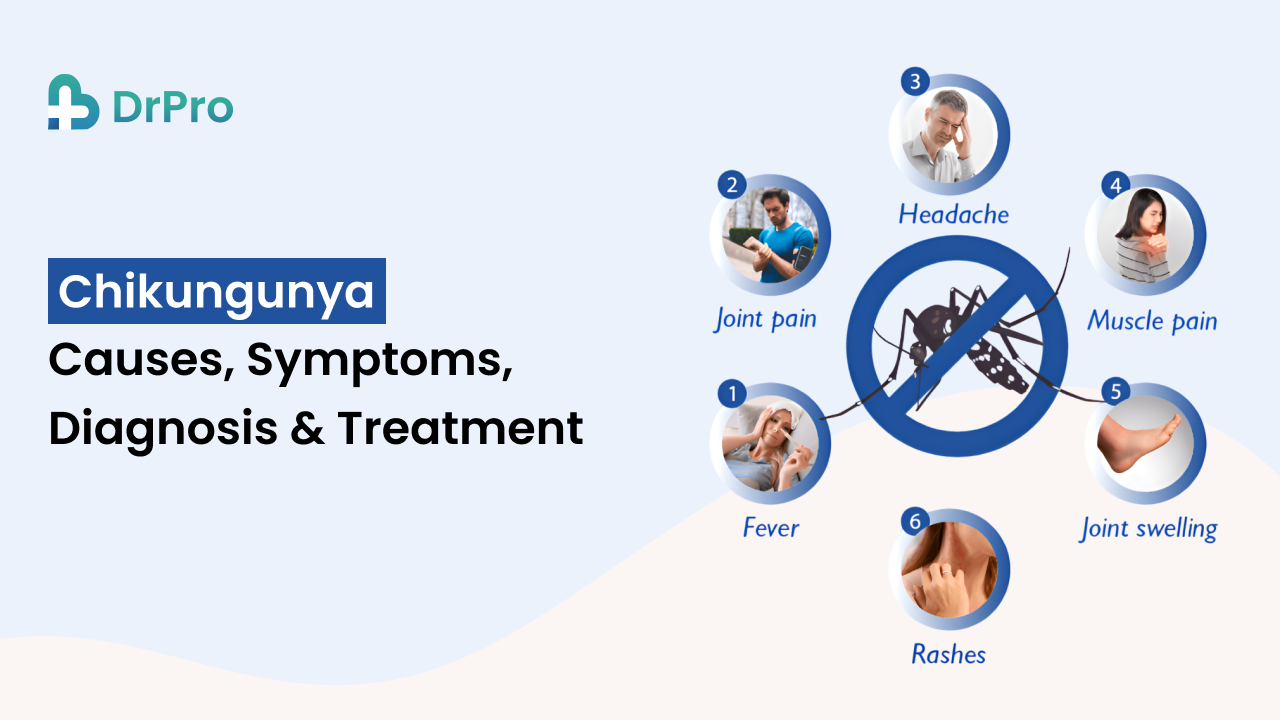While the Chikungunya virus is rarely fatal, its debilitating symptoms may last for long periods. The infection has been characterized by an abrupt onset of fever and marked joint pain.
Causes of Chikungunya virus
Transmission occurs when an infected mosquito bites a human. Vaccinations infect the mosquito by day, with most activity occurring in the early morning or late afternoon hours.
Transmission Cycle:
- Mosquito Bite: A live protozoan obtained from an infected person or animal is injected into a mosquito during a blood meal.
- Virus Incubation in Mosquito: The replicating virus continues to reside in the mosquito for several days(mostly under 14 days).
- Transmitting to the host: Mosquito picks up the virus when biting a person, and thus the cycle starts all over again with the virus being transmitted.
Chikungunya virus is not transmitted from one person to another. However, in rare instances, it can also be transmitted via blood transfusion.
more information about: Dengue Fever: Symptoms, Causes, and Transmission Explained
Symptoms of Chikungunya
Symptoms arise between 3-7 days after a bite from an infected mosquito. The symptoms include:
-
- Fever: Sudden onset of fever, which can be high (>102°F or 39°C) and persistent.
- Joint Pain: Severe pain in the wrists, ankles, and small joints of the hands and feet.
- Headache
- Muscle Pain
- Joint Swelling
- Rash
- Fatigue
- Nausea
Most people tend to recover within one week, but joint pain may last months in some patients. Fortunately, severe complications are rare, except in the elderly and those with underlying conditions.
Diagnosis of Chikungunya
Diagnosis of Chikungunya requires both clinical and laboratory modalities:
Clinical Evaluation:
- Symptoms Evaluation: The health providers will evaluate for characteristic symptoms like fever and joint pain.
- Travel history: Questions concerning travel to areas associated with recent outbreaks of Chikungunya virus are vital.
Laboratory test:
- Blood Tests: Blood tests to detect the presence of CHIKV or antibodies against CHIKV generated during the immune response.
Chikungunya is often mistaken for dengue infections and Zika virus infections as they share similar symptoms. Correct diagnosis is key to correct management.
Treatment for Chikungunya
There is no antiviral treatment specific against Chikungunya. Management mainly focuses on symptomatic relief.
- Rest: Encourage the best recovery of the body with plenty of rest.
- Hydration: Drink adequate fluids to avoid dehydration.
- Medications: Over-the-counter pain relievers, such as acetaminophen or ibuprofen, are used to lower fever and relieve joint pain.
Avoid aspirin, as it may increase the tendency to bleed. Always check with a healthcare officer before taking any medication.
Prevention of Chikungunya virus
Preventive measures against the risk of chikungunya virus are primarily geared toward avoiding mosquito bites:
- Use Insect Repellents: Use repellents containing DEET, picaridin, or oil of lemon eucalyptus.
- Wear Protective Clothing: Long-sleeved shirts and long pants minimize skin exposure.
- Properly Screen Windows and Doors: Ensure windows and doors are securely fitted with screens to prevent entry of mosquitoes.
- Eliminate Stagnant Water: Regularly empty containers, such as flowerpots, buckets, and bird baths, collecting water and providing a breeding ground for mosquitoes.
There are no vaccines for Chikungunya currently, making prevention critical.
Conclusion
Mosquitoes transmit the Chikungunya virus, causing a viral disease with uncomfortable symptoms, especially severe joint pain. While most people fully recover, some experience prolonged joint issues. To avoid infection, individuals should take personal preventive measures against mosquitoes and practice environmental control. If symptoms appear, especially after traveling to endemic regions, seeking timely medical attention ensures proper diagnosis and management. Wellness DrPro Health recommends using mosquito repellents and wearing protective clothing to further reduce the risk of infection
Frequently Asked Questions
Q1. Is the Chikungunya virus fatal in any case?
The Chikungunya virus is rarely fatal. Recovery is complete in most persons, but there may be prolonged joint pain.
Q2. Is Chikungunya spread from person to person?
Mosquito bites mainly spread Chikungunya, and it does not transmit directly between people.
Q3. For how long is the immunity after Chikungunya virus infection?
Once infected, individuals likely develop lifelong immunity against the Chikungunya virus.
Q4. Are any vaccines available for the prevention of Chikungunya?
Currently, there is no vaccine available to prevent Chikungunya infection.
Q5. What should I do if I think I might have Chikungunya?
If you have sudden onset fever and severe joint pain, especially after traveling to regions with known outbreaks, see a medical doctor for evaluation and support.

